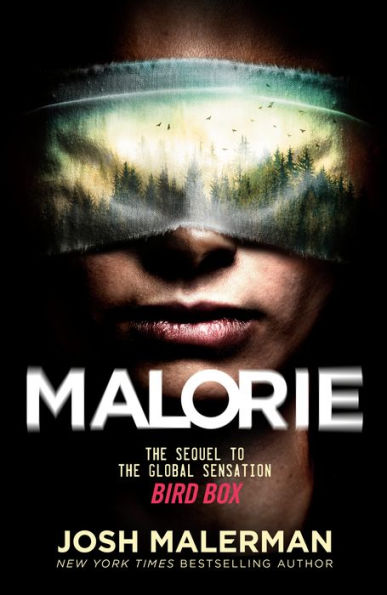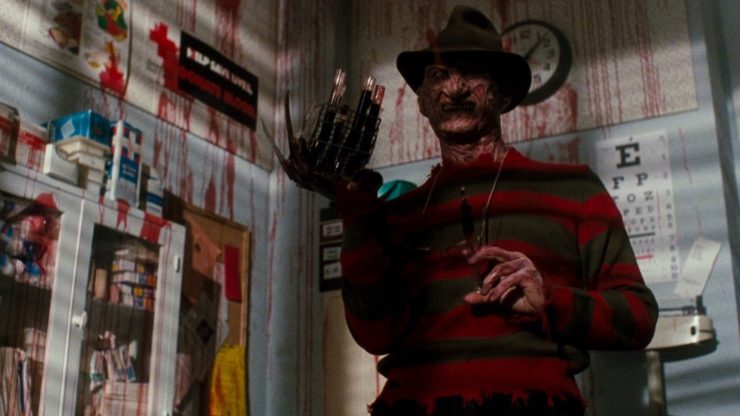First: I love novelizations. They’re fun and, in the right hands, they can tell a very different story than the one you already know: the movie. A killer example of this is John Skipp and Craig Spector’s Fright Night. Anybody who hired Skipp/Spector had to know they were playing with fire (that duo wasn’t going to follow any script, not all the way), and the result is a book that, well, kinda reads as if it were the source material for the movie to follow after. Of course, that isn’t the case. Fright Night was a script, then a film, then a maverick novelization. But it gets you thinking…
What would it have been like to read certain stories before they were movies? What would it have been like to watch these stories gain traction, before becoming the movies we now know them to be? And how would that initial encounter with this fictional source material change what we thought of the movies we adore?
Imagine a whole stack of horror novels that do not exist. Stories to be experienced first, on our own, as readers, to talk about, to post about. Imagine iconic characters we get to see in our heads before witnessing their definitive images on screen.
This is a seriously interesting idea.
Buy the Book


Malorie: A Bird Box Novel
Because we all say the book was better. Almost every time. In fact, we say it so much that it’s become a party favor to claim the opposite. But now, imagine a movie you loved dearly, one you’ve long considered to be one of the finest ever made. And then, oh my, someone says, Did you know it was book first? And what if that book eclipsed even your estimation of the film itself?
You could go a long way with this. Every original script could’ve been a book first if the writer(s) had seen it that way. And so not only is fun to imagine a better variation of one of your favorite stories… but how about the feeling you might have, revisiting that movie, having read the book, only to discover, oh no, they didn’t do it right after all?
Here are five horror movies that I wish were books first. So that I could’ve experienced them on my own, privately, in my office and home. So that I could’ve talked to my friends about them, first, so that I could’ve witnessed the spread of the story, climbing in favor amongst us readers before the whole world was blasted with them, in the form of a film, at once:
A Nightmare on Elm Street
Just think. Freddy described in a book. You haven’t seen him yet. You’ve never heard of Robert Englund. You don’t know the sing-songy coming for you and you don’t know the color of the blood favored by Wes Craven. All you have in your hands is a book.
Oh would this one have been fun.
And without the music to tell you how to feel, this book might’ve been scarier than the movie that scared you deep.
That’s the thing (one thing) about horror novels: even the bad ones creep into you. You’re not sitting with a friend in a theater as you read it, you’re not predicting their opinion. You got you, the words, the room you’re in, and, in this case, Freddy Kreuger, a figure in a sweater and hat, a glove of knived fingers on one hand, burnt flesh from head to toe. What might have you imagined him to move like, to sound like, to feel like, had you been given the chance to do so? It’s not easy to remove such an iconic figure from your head. But try it. Try to feel it, being there at the grass roots moment of a story like this one, a story about a deranged lunatic who stalks you in your dreams. Nobody else knows this story yet. Just you and some fellow readers. Imagine reading the scene where Nancy falls asleep in class, sees the body bag in the hall. Maybe you’d pause and put the book down because, wow, you’re pretty freaked out. And there isn’t a friend sitting in the theater or on the couch beside you as you experience Freddy Kreuger for the first time in your life. You’re alone with him. And what’s worse? You gotta go to bed soon. And what’s worse than that? Most books take longer than 101 minutes (the length of A Nightmare on Elm Street the movie). So maybe we’re talking a couple nights, three nights, of having to set that book down, your own imagined idea of Freddy in mind, needing to fall asleep. And if you can’t fall asleep? Well, then that slow creep of all great scary books would work its way through you the next day at school, as you do all you can not to fall asleep in class.
The Blair Witch Project
It’s tempting to imagine this nonexistent book passed off as non-fiction. A faux-diary, an account of a documentary gone wrong, an epistolary jaunt into the woods passed off as a true story. And while that’s interesting to knock around, I’d rather imagine the story itself, the setting (especially), populated by our three main characters, the doomed trio getting more and more lost, the subtle hints of a witch rattling their nerves. This story could’ve soared as a modern folk-horror novel in the hands of, say, Karl Edward Wagner or Dathan Auerbach. Imagine, here, a slow burn, but the kind that somehow doubles as a thriller, so that you can’t put it down, even as “not much” is happening. The slow build of what’s out there would be crushing! Is there really a witch? Is it a myth? The mounting frustration between Heather, Mike, and Josh would be palpable on the page. And, oh, imagine reading about Heather alone in the tent, crying her face off, things have gotten so scary. By this point I’d be rooted to my reading chair, frozen with fright. Imagine your mom calling form the doorjamb, you not knowing she was there, just as something large seems to run by that very tent! Imagine finishing the book and, later, taking a drive, passing a decrepit farmhouse wedged in the woods, far off the highway. Yes, imagine the chills of a sight like that, the only sight that matches the idea of that house in your head, because you haven’t yet had the movie to tell you what it all looked like.
I don’t think I’d ever head down to the basement of my house, or any, ever again.
The Cabinet Of Dr. Caligari
Even without the brilliant set pieces of the movie, this story would be irresistible to readers of horror fiction. Picture this: there is no movie called The Cabinet of Dr. Caligari. You’re at a horror convention. Someone on one of the panels makes mention of an obscure book from 1919 in which a hypnotist uses a sleepwalker to commit murders.
Done.
Now, depending, of course, on how well it was done, a book like that would have a chance against the giants like Frankenstein and Strange Case of Dr. Jekyll and Mr. Hyde. Imagine sinking into the old-time language. The shadows and corners of the village Holstenwall.
Imagine Cesare on the page!
Would the book have included the twist ending? Or is that something fans of the book would’ve hated for a century and more?
This is interesting:
Imagine Wiene (director) and co go nuts on the set direction for the film version, giving us a hallucinatory version of what was a much simpler, shadowy novel. Would we love it? Would it remain the definitive version of the story? Would it still retain its expressionist charm?
I think it would have, yes, but it’s fascinating fantasizing, a big What if? If one of the most influential movies of all time was seen, rather, as an artsy take on an otherwise small, but potent, tale of murder and the occult.
Get Out
You really gotta put yourself in a place where you have no visual connection to this story. You haven’t seen the now iconic image of Daniel Kaluuya sinking into the chair. You haven’t seen Allison Williams’s phony smile. All you’ve got is this incredible, twisted tale taking place in your head alone. As you read, the tension is already rising on the ride to meet Rose’s family. The dead deer on the road. The moment with the police officer on the way. You’re getting all the foreshadowing and building dread, and you’re starting to think, Chris, look out, this doesn’t feel right, or: it feels too right. And by the time you get to the auction (this after having met Georgina and Walter, we’re seriously worried about Chris) we’re literally saying out loud the title of the book.
Get Out would have made one of the most spectacular horror novels of all time. Overflowing with tension, the ticking clock of what Chris is in store for would’ve shredded our nerves. I can almost imagine the cover art: a teacup and a spoon, both rendered with just enough dread to warn us: this one is the real deal.
Near Dark
Had there been a novel first, a horror-“western” about a pack of vampires who agree to allow a freshly bitten man into their ranks, to teach him to hunt, this might be the rare case where, no matter how the book was handled, the movie would’ve been better. Because this movie is incredible. But let’s step back and imagine… the book. The smell of it, the font, the cover.
The fabulous bar scene in particular.
Or would it be a saloon?
Because let’s flip what director Kathryn Bigelow did: rather than a horror movie with western motifs, let’s say the book is a full-bore western… with vampires.
In the book (that doesn’t exist), the “saloon scene” would’ve been the stuff of legend. Severen (Bill Paxton in the film, but we don’t know what Severen looks like as we read him) would’ve scared us pale: an unhinged outlaw swollen with the hubris of a vampire. And the pack leader Jesse Hooker could’ve been one of the great literary villains of all time.
Perhaps the book would’ve been best told from the perspective of conflicted Mae, as she kills the people Caleb can’t bring himself to kill, as she narrates, to us, the regret of having turned him, while we relate to what people might do who feel so unfathomably alone.
And all that blood, splattered across the old west, might’ve looked like food to us readers, as it did to those characters upon the pages.
Josh Malerman is a New York Times bestselling author and one of two singer/songwriters for the rock band The High Strung. His debut novel, Bird Box, is the inspiration for the hit Netflix film of the same name. His other novels include Unbury Carol and Inspection. Malerman lives in Michigan with his fiancée, the artist/musician Allison Laakko










